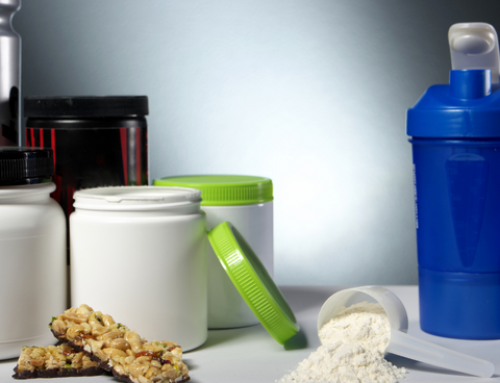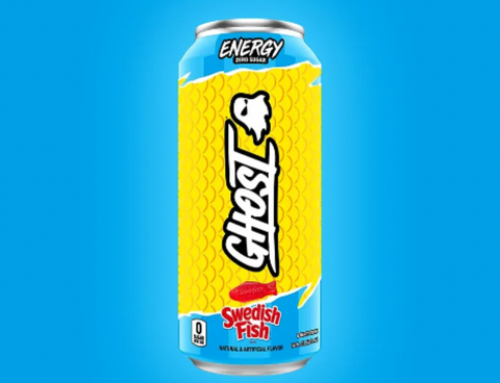The Lowdown on Supplements
![]() Jose Antonio, CEO of the International Society of Sports Nutrition, defines a supplement as “any vitamin, mineral, herb or amino acid that is used to ‘supplement’ one’s diet.” Popular supplements range from multivitamins that help offset nutritional deficiencies to products containing protein, creatine and beta-alanine, which are usually consumed to enhance performance.
Jose Antonio, CEO of the International Society of Sports Nutrition, defines a supplement as “any vitamin, mineral, herb or amino acid that is used to ‘supplement’ one’s diet.” Popular supplements range from multivitamins that help offset nutritional deficiencies to products containing protein, creatine and beta-alanine, which are usually consumed to enhance performance.
Drew Robertson, owner of Evolved Nutrition, agrees with other experts that a well-balanced diet should be the foundation of your nutritional intake. “First and foremost is that any athlete should concentrate on eating properly,” he says. “Supplements are there to supplement a healthy diet.”
Robertson worries that athletes who appear in advertisements for these products create false hopes. Some users believe that simply by taking the supplement, they will look and perform like the athlete-endorser. “The young guys have to understand that they [high profile athletes] have guys like me, other dietitians, working for them to construct a really great one-off diet. Then they supplement,” he says.
If you are not meeting your nutritional needs despite a well-balanced diet, it may be time to consider supplementation. Every supplement is different, so it is extremely important to follow the instructions in relation to the recommended daily nutrient values.
Although supplements are assumed to be safe, not all are. In a study performed by the British laboratory HFL, 13 of 52 supplements available in the U.S. were found to be contaminated with steroids or stimulants. As an aspiring collegiate or professional athlete, you must know that tainted supplements will result in a failed drug test. One way to tell if a supplement is free of contaminants is to look for the NSF-certified seal, which signifies that the product has been thoroughly tested and proven to contain no contaminants. However, just because a product is not NSF-certified, it does not necessarily mean it is unsafe.
Elite athletes use proper nutrition to help them consistently perform at peak levels. Young athletes who aspire to elite status should follow their example. Before taking any supplement, consult with your parents, your coach and your doctor. Safe supplement practices will help prepare you for the next step in your athletic career.
For more information, visit http://www.nsf.org.
RECOMMENDED FOR YOU
MOST POPULAR
The Lowdown on Supplements
![]() Jose Antonio, CEO of the International Society of Sports Nutrition, defines a supplement as “any vitamin, mineral, herb or amino acid that is used to ‘supplement’ one’s diet.” Popular supplements range from multivitamins that help offset nutritional deficiencies to products containing protein, creatine and beta-alanine, which are usually consumed to enhance performance.
Jose Antonio, CEO of the International Society of Sports Nutrition, defines a supplement as “any vitamin, mineral, herb or amino acid that is used to ‘supplement’ one’s diet.” Popular supplements range from multivitamins that help offset nutritional deficiencies to products containing protein, creatine and beta-alanine, which are usually consumed to enhance performance.
Drew Robertson, owner of Evolved Nutrition, agrees with other experts that a well-balanced diet should be the foundation of your nutritional intake. “First and foremost is that any athlete should concentrate on eating properly,” he says. “Supplements are there to supplement a healthy diet.”
Robertson worries that athletes who appear in advertisements for these products create false hopes. Some users believe that simply by taking the supplement, they will look and perform like the athlete-endorser. “The young guys have to understand that they [high profile athletes] have guys like me, other dietitians, working for them to construct a really great one-off diet. Then they supplement,” he says.
If you are not meeting your nutritional needs despite a well-balanced diet, it may be time to consider supplementation. Every supplement is different, so it is extremely important to follow the instructions in relation to the recommended daily nutrient values.
Although supplements are assumed to be safe, not all are. In a study performed by the British laboratory HFL, 13 of 52 supplements available in the U.S. were found to be contaminated with steroids or stimulants. As an aspiring collegiate or professional athlete, you must know that tainted supplements will result in a failed drug test. One way to tell if a supplement is free of contaminants is to look for the NSF-certified seal, which signifies that the product has been thoroughly tested and proven to contain no contaminants. However, just because a product is not NSF-certified, it does not necessarily mean it is unsafe.
Elite athletes use proper nutrition to help them consistently perform at peak levels. Young athletes who aspire to elite status should follow their example. Before taking any supplement, consult with your parents, your coach and your doctor. Safe supplement practices will help prepare you for the next step in your athletic career.
For more information, visit http://www.nsf.org.











